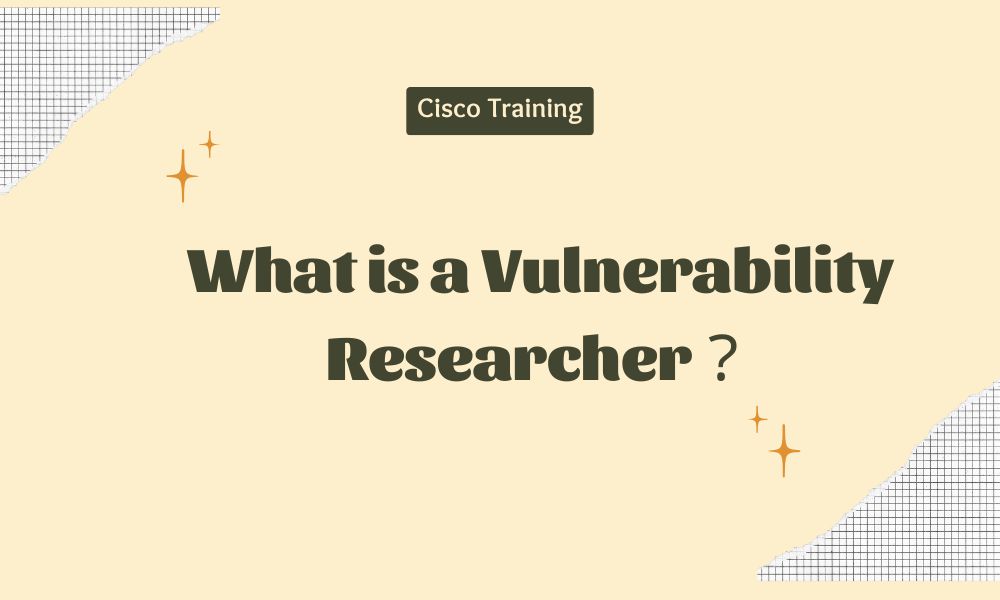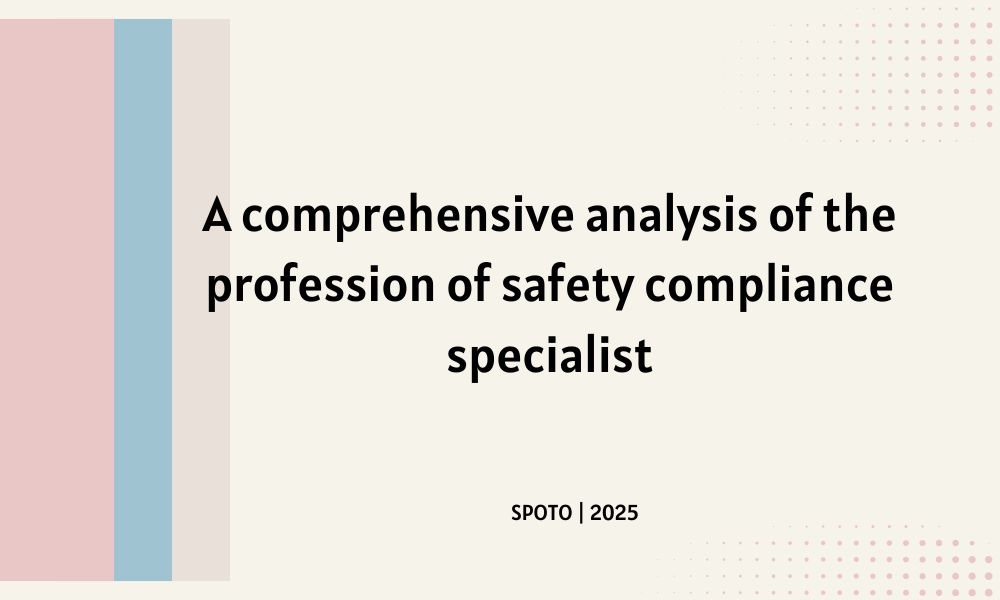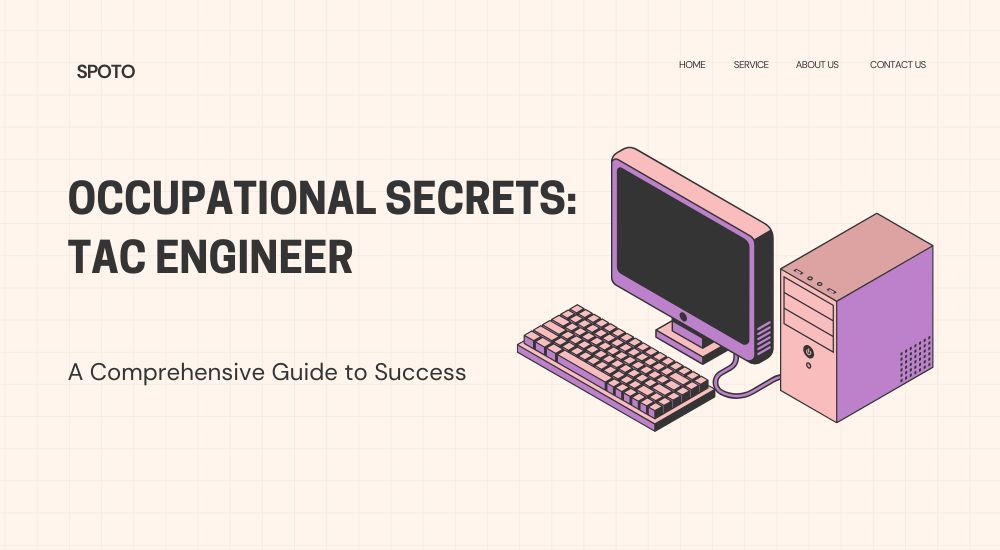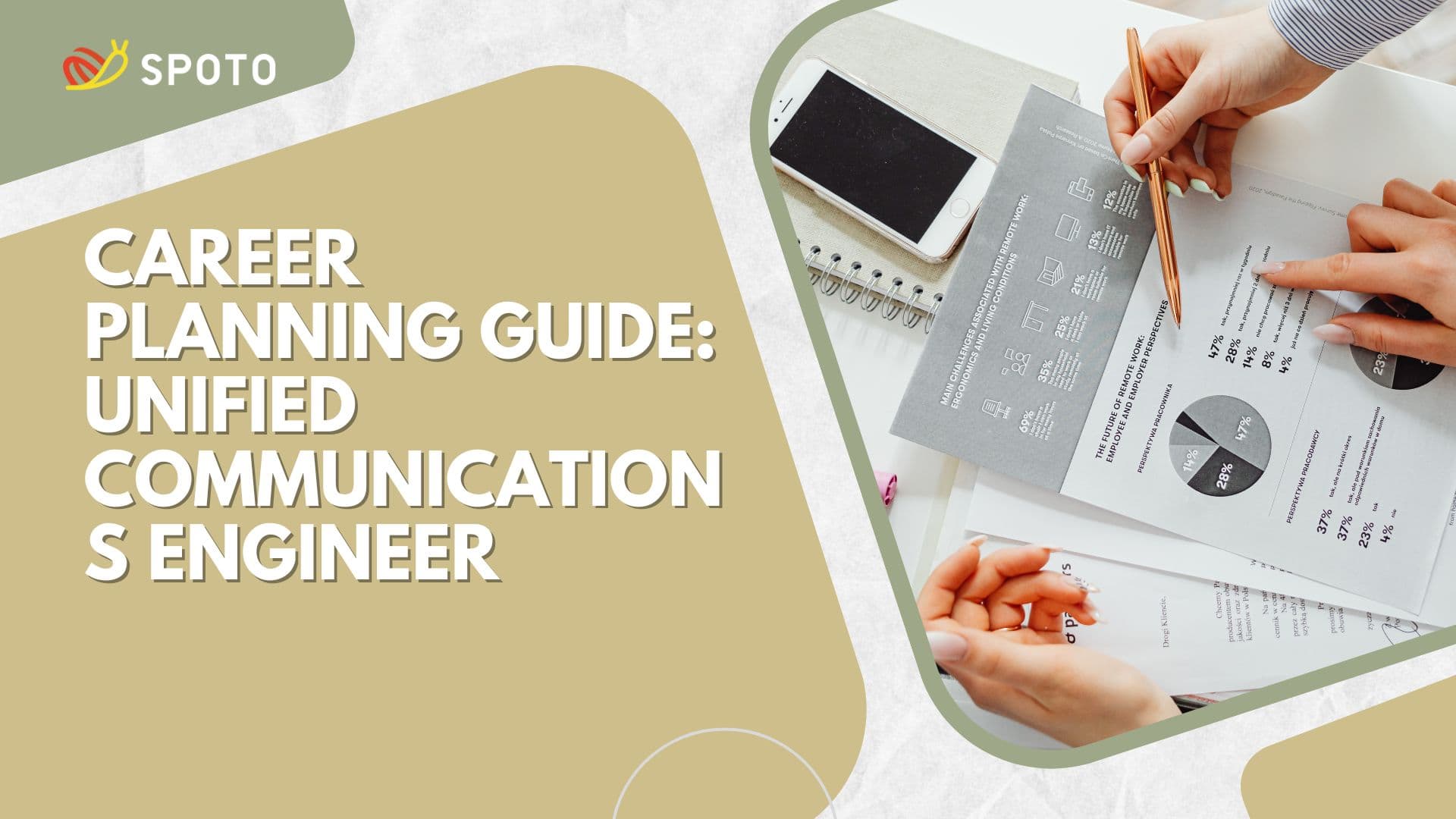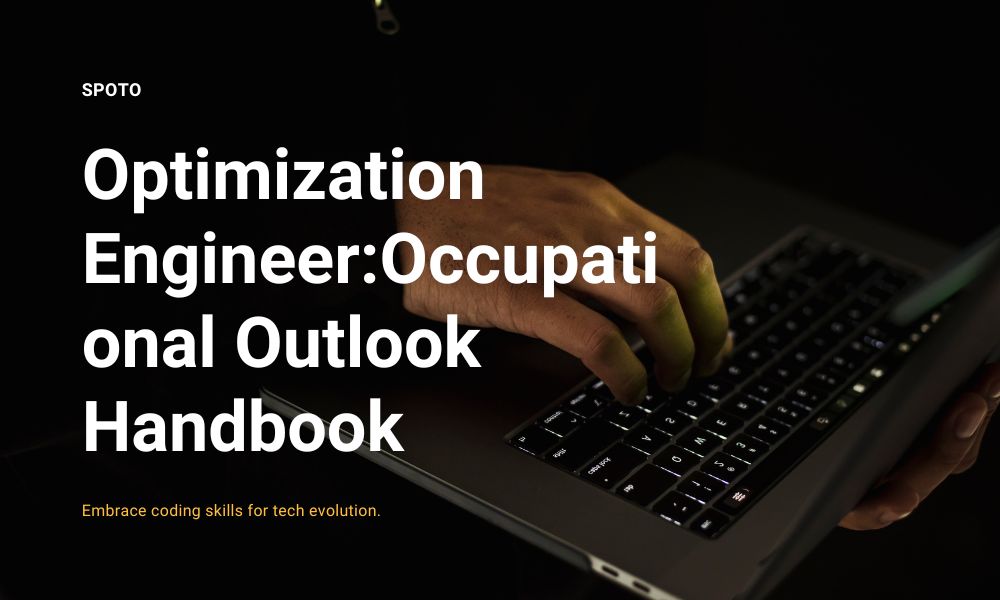TRUSTED BY THE SMARTEST TEAMS IN THE WORLD FOR CERTIFIED CANDIDATES
SPOTO Blogs
Useful learning materials to become certified IT personnel
-
- 421
- SPOTO
- 2025-06-30 11:57
-
- 658
- SPOTO
- 2025-06-30 11:49
-
- 311
- SPOTO
- 2025-06-27 15:36
-
- 435
- SPOTO
- 2025-06-27 15:24
-
- 354
- SPOTO
- 2025-06-26 16:13
-
- 636
- SPOTO
- 2025-06-26 16:04
-
- 409
- SPOTO
- 2025-06-25 14:16
-
- 341
- SPOTO
- 2025-06-25 11:12
-
- 354
- SPOTO
- 2025-06-24 12:02
TRUSTED BY THE SMARTEST TEAMS IN THE WORLD FOR CERTIFIED CANDIDATES
SPOTO Blogs
Useful learning materials to become certified IT personnel
-
- 421
- SPOTO
- 2025-06-30 11:57
Table of Contents1. What is a Vulnerability Researcher?2. How much does a Vulnerability Researcher Make?3. Job Outlook of Vulnerability Researcher4. What Are the Qualifications to Become a Vulnerability Researcher?5. Similar Occupations of Vulnerability Researcher This article will introduce you to what a Vulnerability Researcher is, the career information of a Vulnerability Researcher and the necessary conditions to become a Vulnerability Researcher.By reading this article, you will gain an in-depth understanding of the profession of Vulnerability Researcher. 1. What is a Vulnerability Researcher? A vulnerability researcher is an information technology professional who analyzes the integrity of information systems and devices to discover possible unexpected behaviors in devices or services. Other job duties for a Vulnerability Researcher may include the following: The work of a Vulnerability Researcher mainly includes in-depth analysis of the security weaknesses of software, hardware and network systems through reverse engineering and code auditing techniques. First, static and dynamic analysis tools (such as IDA Pro, Ghidra, Fuzzer, etc.) are used to mine vulnerabilities in the target system to identify potential security risks such as logical defects or configuration errors. Then, PoC (proof of concept) code is built to reproduce the vulnerability and evaluate its hazard level. At the same time, vulnerabilities are classified and scored in accordance with standards such as CVE and CVSS. After confirming the validity of the vulnerability, a detailed technical analysis report is required to be written and work with the development team or manufacturer to promote repairs. In addition, the latest vulnerability trends in the industry (such as zero-day vulnerabilities) must be continuously tracked, new attack methods must be studied, and detection solutions must be optimized to enhance the company's defense capabilities. The ultimate goal is to reduce the risk of system attacks by actively discovering and repairing security defects. 2. How much does a Vulnerability Researcher Make? According to data from the ZipRecruiter website on June 22, 2025, the average annual salary for vulnerability researchers in the United States is $113,102. That's about $54.38 per hour. This is equivalent to $2,175 per week or $9,425 per month. The highest annual salary can reach $164,500 and the lowest is only $30,000, but most vulnerability researchers currently earn between $67,000 and $154,000, with the highest earners earning $154,000 per year across the United States. The average salary range for vulnerability researchers varies greatly (up to $87,000), which means there may be many opportunities for advancement and pay increases based on skill level, location, and years of experience. 3. Job Outlook of Vulnerability Researcher The job outlook for vulnerability researchers is very strong, and is expected to grow much faster than the average for all occupations. The U.S. Bureau of Labor Statistics predicts that the demand for information security analysts (which includes positions such as vulnerability researchers) will grow 33% between 2020 and 2030. 4. What Are the Qualifications to Become a Vulnerability Researcher? (1) Obtain a Bachelor's Degree A background in cybersecurity, computer science, or engineering is essential for this career (2) Develop professional skills As a vulnerability researcher, you first need to master the techniques related to vulnerability mining and analysis, including reverse engineering, binary analysis, debugging, etc., in order to deeply discover potential security risks in the system or software. At the same time, it is also crucial to have the ability to develop vulnerability exploits, be able to write proof-of-concept code (PoC) and understand common vulnerability types, such as buffer overflow, format string vulnerability, and privilege escalation. In addition, being familiar with and proficient in using various security analysis and penetration testing tools, such as IDA Pro, Ghidra, OllyDbg, WinDbg, Burp Suite, Metasploit, and Nmap, is an important foundation for daily work. In order to conduct vulnerability research efficiently, you also need to have solid programming and scripting skills, and common languages ​​include C/C++, Python, and assembly language. On the other hand, understanding common operating systems such as Linux, Windows, Android, and iOS and their security mechanisms will help to conduct vulnerability analysis and verification on different platforms. (3) Earn Industry Certifications Obtaining a certification that is highly recognized by the industry can prove your professional ability and ability to perform the position, and can also enhance your competitiveness in the workplace. Therefore, we recommend that you obtain the CCNP Cybersecurity certification.This certification can show your expertise in preventing cyber attacks, responding to incidents, and securing the cloud. Advance your career with a Cisco Cybersecurity Professional certification. 5. Similar Occupations of Vulnerability Researcher Security Engineer Penetration Tester Cybersecurity Analyst Vulnerability Analyst Ethical Hacker Security Researcher Application Security Engineer Malware Analyst Security Consultant Digital Forensics Analyst -
- 658
- SPOTO
- 2025-06-30 11:49
Table of Contents1. What is a Security Compliance Specialist?2. How much does a Security Compliance Specialist Make?3. Job Outlook of Security Compliance Specialist4. What Are the Qualifications to Become a Security Compliance Specialist?5. Similar Occupations of Security Compliance Specialist This article will introduce you to what a Security Compliance Specialist is, the career information of a Security Compliance Specialist and the necessary conditions to become a Security Compliance Specialist.By reading this article, you will gain an in-depth understanding of the profession of Security Compliance Specialist. 1. What is a Security Compliance Specialist? A security compliance specialist is an IT expert who protects a company or organization's sensitive data and network systems by conducting audits, detecting risks, and developing security strategies, and ensures that the organization complies with security regulations and internal policies. Other job duties for a Security Compliance Specialist may include the following: The work of a security compliance officer includes the following aspects: First, they need to develop and continuously improve the information security and compliance management system according to the company's strategic goals to ensure that the company can meet the requirements of relevant standards and regulations such as ISO 27001 and GDPR. Secondly, security compliance officers should conduct risk assessments and compliance reviews regularly to reduce the compliance risks faced by the organization by identifying potential security risks and proposing rectification suggestions. At the same time, it is necessary to coordinate internal and external audit work, including preparing audit materials, following up on audit issues and implementing rectification measures to ensure the efficiency and smoothness of the audit process. In addition, security compliance officers also need to write and update security compliance-related documents, such as policies, processes and control lists, to ensure the completeness and timeliness of the document system. In addition, it is also one of the indispensable responsibilities of this position to enhance the compliance and security awareness of all employees through employee security training and publicity. Finally, security compliance officers need to pay close attention to changes in industry regulations and standards, and provide compliance suggestions to management in a timely manner so that the company can quickly respond to adjustments in the external environment and continuously optimize the overall security compliance level. 2. How much does a Security Compliance Specialist Make? According to ZipRecruiter, the average annual salary for a Security Compliance Specialist in the United States is $81,143 as of June 22, 2025. That works out to about $39.01 per hour. That's about $1,560 per week or $6,761 per month. Annual salaries can be as high as $123,500 and as low as $32,500, but most Security Compliance Specialists currently make between $60,500 and $100,000 per year, with the highest earners in the country making up to $119,500 per year. The average salary range for a Security Compliance Specialist varies widely (up to $39,500), which means there may be many opportunities for advancement and pay depending on skill level, location, and years of experience. 3. Job Outlook of Security Compliance Specialist The job outlook for security compliance specialists is positive, and the demand for this position is expected to continue to grow in the future job market. According to statistics from the U.S. Bureau of Labor Statistics, the number of compliance officers is expected to grow by 5% from 2023 to 2033, which is about the same as the average growth rate for all occupations. In addition, it is expected that there will be an average of 34,400 vacancies per year for compliance officer positions over the next decade. Many of these vacancies are expected to be filled by employees who transfer or exit the labor market (such as retirement). 4. What Are the Qualifications to Become a Security Compliance Specialist? (1) Obtain a Bachelor's Degree Typically employee need a bachelor's degree is required, usually in a related field such as information security, computer science, or a related IT field (2) Develop professional skills As a security compliance specialist, you not only need to be familiar with and master mainstream security compliance standards and regulations such as ISO 27001, SOC 2, and GDPR, but also have the ability to formulate and improve information security policies, processes, and control measures. At the same time, it is also crucial to be able to use risk assessment and gap analysis methods to promptly identify potential compliance risks and put forward practical and feasible rectification suggestions. In addition, being familiar with the audit process and being able to efficiently cooperate with internal and external audits will help ensure the smooth progress of compliance work. At the same time, cross-departmental collaboration and training and presentation capabilities are also one of their indispensable skills, which helps to improve the security awareness and compliance level of all employees. (3) Earn Industry Certifications Obtaining a certification that is highly recognized by the industry can prove your professional ability and ability to perform the position, and can also enhance your competitiveness in the workplace. Therefore, we recommend that you obtain the CCNP Cybersecurity certification.This certification can show your expertise in preventing cyber attacks, responding to incidents, and securing the cloud. Advance your career with a Cisco Cybersecurity Professional certification. 5. Similar Occupations of Security Compliance Specialist Information Security Analyst Cybersecurity Analyst Security Engineer Compliance Manager Compliance Officer Security Architect IT Security Manager Director of Compliance -
- 311
- SPOTO
- 2025-06-27 15:36
Table of Contents1. What is a Core Network Engineer?2. How much does a Core Network Engineer Make?3. What Are the Qualifications to Become a Core Network Engineer? 1. What is a Core Network Engineer? A core network engineer refers to a core network technician who leads an organization's relevant network team to design, develop and maintain the core framework of the organization's network system. Other job duties for a Core Network Engineer may include the following: TAC Engineers are often responsible for designing and implementing the network infrastructure of enterprises or service providers, including local area networks (LANs), wide area networks (WANs), and other data communication networks; at the same time, they also need to perform network modeling, capacity analysis, and planning to ensure network performance and scalability. In addition, TAC Engineers need to closely monitor and troubleshoot network equipment and system failures, and improve network availability and stability through troubleshooting and problem solving, which usually involves in-depth analysis of logs, configuration parameters, and evaluation of network routing and switching structures. As automation becomes increasingly important in modern network operations, TAC Engineers will also use automation tools and scripting languages ​​(such as Python) to simplify daily tasks, thereby improving work efficiency and responsiveness. At the same time, security protection and firewall management are also the focus of TAC Engineers' work. They need to design and maintain network security policies to ensure that access control, VPNs, and other security mechanisms operate reliably to protect the network from intrusion or attack. Finally, TAC Engineers also need to have good technical communication skills - not only to communicate efficiently with customers, clarify requirements and problem scenarios, but also to write clear technical documents, and collaborate with internal R&D and delivery teams to connect solutions and optimization suggestions. 2. How much does a Core Network Engineer Make? According to data from the ZipRecruiter website on June 19, 2025, the average annual salary for a core network engineer in the United States is $109,040. That's about $52.42 per hour. This is equivalent to $2,096 per week or $9,086 per month. The highest annual salary can reach $158,000 and the lowest is only $31,000, but the current salary for core network engineers is mostly between $89,000 and $133,500, and the highest salary in the United States can reach $143,000 per year. The average salary range for a core network engineer varies greatly (up to $44,500), which means there may be many opportunities for advancement and salary increases depending on skill level, location, and years of experience. 3. What Are the Qualifications to Become a Core Network Engineer? (1) Obtain a Bachelor's Degree Degree in Computer Science, Information Technology or Computer Engineering is necessery for Core Network Engineer. (2) Develop professional skills As an excellent TAC Engineer, you first need to have a solid foundation of network knowledge, be familiar with TCP/IP protocols, routing and switching technologies (such as OSPF, BGP, etc.), and the architecture design of wide area networks and local area networks. In addition, it is essential to be proficient in the configuration and troubleshooting of network equipment, including the ability to deeply analyze logs, locate network bottlenecks and security risks.At the same time, with the development of network automation, mastering at least one scripting language (such as Python) and network automation tools will greatly improve work efficiency and response speed. You should also have a full understanding of network security technology and be able to configure and maintain security measures such as firewalls, VPNs, and access control lists (ACLs) to ensure the security and stability of the network environment.In addition, TAC Engineers must also have good communication and coordination skills, be able to communicate effectively with customers and internal teams, accurately understand problem requirements and provide technical support, write clear technical documents, and promote the rapid resolution of problems. Finally, the ability to continuously learn new technologies and new products is also a key skill to maintain competitiveness and adapt to industry development. (3) Earn Industry Certifications Obtaining a certification that is highly recognized by the industry can prove your professional ability and ability to perform the position, and can also enhance your competitiveness in the workplace. Therefore, we recommend that you obtain the CCIE Service Provider certification.This certification can prove your ability to plan, design, implement, operate, and optimize solutions for complex service provider networks. Tap into unlimited opportunities with the Cisco Certified Internetwork Expert (CCIE) Service Provider certification. 4. Similar Occupations of Core Network Engineer Network Engineer Network Administrator Network Architect Systems Engineer Information Technology (IT) Specialist IP/MPLS Network Engineer Backbone Network Engineer Datacenter Network Engineer Telecommunications Engineer -
- 435
- SPOTO
- 2025-06-27 15:24
Table of Contents1. What is a TAC Engineer?2. How much does a TAC Engineer Make?3. Job Outlook of TAC Engineer4. What Are the Qualifications to Become a TAC Engineer?5. Similar Occupations of TAC Engineer This article will introduce you to what a TAC Engineer is, the career information of a TAC Engineer and the necessary conditions to become a TAC Engineer.By reading this article, you will gain an in-depth understanding of the profession of TAC Engineer. 1. What is a TAC Engineer? TAC Engineer refers to a professional technician who is responsible for diagnosing, troubleshooting and resolving network or system problems in an enterprise or organization, and providing necessary technical support for products and services. Other job duties for a TAC Engineer may include the following: The main responsibility of TAC engineers is to provide high-quality technical support to customers around the world. First, they need to respond to customer questions in a timely manner, and accurately diagnose and resolve various network equipment or software failures through in-depth analysis of logs, system behaviors, and configuration parameters. Secondly, TAC engineers need to work closely with the internal R&D team to track and promote the fundamental resolution of technical issues to ensure customer satisfaction. At the same time, during the support process, detailed technical documents and knowledge base entries need to be written to improve the efficiency of team knowledge sharing. In addition, TAC engineers also need to continue to learn product updates and new technologies to maintain the leading edge of technical capabilities. Therefore, TAC engineers are not only customer problem solvers, but also a bridge for technical communication and a key role in product quality feedback. 2. How much does a TAC Engineer Make? According to ZipRecruiter, the average annual salary for tactical engineers in the United States is $101,752 as of June 19, 2025. That's about $48.92 per hour. That's $1,956 per week or $8,479 per month. Annual salaries can be as high as $137,500 and as low as $39,000, but most Tac Engineers currently make between $84,000 and $116,500, with the highest earners in the United States making $135,000 per year. The average salary range for Tac Engineers varies widely (up to $32,500), which means there may be many opportunities for advancement and pay increases depending on skill level, location, and years of experience. 3. Job Outlook of TAC Engineer According to statistics from the U.S. Bureau of Labor Statistics, the number of computer hardware engineers employed is expected to grow by 7% from 2023 to 2033, which is faster than the average growth rate for all occupations. It is expected that there will be an average of about 5,000 computer hardware engineer vacancies each year over the next decade. Many of these vacancies are expected to be filled by people who change careers or exit the labor market (such as retirement). TAC Engineer is also one of the related occupations of the above occupations, and the above information can be used as a reference. 4. What Are the Qualifications to Become a TAC Engineer? (1) Obtain a Bachelor's Degree TAC Engineer usually need a bachelor's degree in computer Science, information Technology or IT-related fields to enter the industry. (2) Develop professional skills The position of TAC Engineer often requires certain network skills, including cloud network skills and programming skills. For example, understanding TCP/IP, OSI model, routing protocols (OSPF, BGP), switching technology and network security principles. And knowing how to use firewalls, VPNs and other network security devices and various network operating systems (such as Cisco IOS, Juniper Junos). (3) Earn Industry Certifications Obtaining a certification that is highly recognized by the industry can prove your professional ability and ability to perform the position, and can also enhance your competitiveness in the workplace. Therefore, we recommend that you obtain the CCIE Service Provider certification.This certification can prove your ability to plan, design, implement, operate, and optimize solutions for complex service provider networks. Tap into unlimited opportunities with the Cisco Certified Internetwork Expert (CCIE) Service Provider certification. 5. Similar Occupations of TAC Engineer Network Engineer System Engineer Network Administrator Technical Support Specialist Sales Engineer Network Operations Center (NOC) Technician Desktop Support Technician Infrastructure Engineer Solutions Architect -
- 354
- SPOTO
- 2025-06-26 16:13
Table of Contents1. What is a Computer programmer?2. How much does a Computer programmer Make?4. What Are the Qualifications to Become a Computer programmer?5. Similar Occupations of Computer programmers This article will introduce you to what a Computer programmers is, the career information of a Computer programmers and the necessary conditions to become a Computer programmers.By reading this article, you will gain an in-depth understanding of the profession of Computer programmers. 1. What is a Computer programmer? A computer programmer is a professional technician who writes, designs and develops codes and scripts that can be recognized and run by computers to ensure the normal operation of computer systems or software programs. Other job duties for a Computer programmer may include the following: Computer programmers first need to convert the program design plans developed by software engineers or designers into computer executable code; at the same time, you will also master at least one or more programming languages ​​(such as C++, JavaScript, Python, etc.) so that you can write and maintain efficient software. Secondly, computer programmers also need to make good use of code libraries and integrated development environments (IDEs) to simplify the development process and improve coding efficiency through automated tools. In addition, during the development process, they must continue to test the program, find and fix bugs in a timely manner, to ensure the stability and performance reliability of the application. In addition, when errors occur in the system, computer programmers need to troubleshoot and tune, and work closely with engineering, testing or security teams. 2. How much does a Computer programmer Make? According to data from ZipRecruiter on June 18, 2025, the average annual salary for computer programmers in the United States is $64,974. That's about $31.24 per hour. That's equivalent to $1,249 per week or $5,414 per month. The highest annual salary can be as high as $95,500 and as low as $33,000, but most computer programmers currently make between $50,500 and $80,000 per year, with the highest earners in the United States making up to $87,000 per year. The average salary range for computer programmers varies widely (up to $29,500), which means they may have many opportunities for advancement and pay increases depending on skill level, location, and years of experience. 3. Job Outlook of Computer programmer The job market demand for computer programmers is affected by changes in the economic cycle, but is generally stable.According to statistics from the U.S. Bureau of Labor Statistics, the employment rate of computer programmers is expected to decline by 10% from 2023 to 2033. However, despite the decline in employment, it is expected that there will be an average of about 6,400 computer programmer vacancies per year in the next decade. All of these vacancies are expected to fill the workforce that changes careers or exits the labor market (such as retirement). 4. What Are the Qualifications to Become a Computer programmer? (1) Obtain a Bachelor's Degree Since the work of computer programmers mainly revolves around computer network systems, having the necessary knowledge of computer networks is the basis for entry. Computer programmers usually need a bachelor's degree in network engineering, computer science, or IT-related fields to enter the industry. (2) Develop professional skills Computer programmers often need to have a solid foundation in computer and software engineering principles to ensure the smooth progress of their work. First of all, proficiency in languages ​​such as Java, C++, and Python is a basic skill for computer programmers, and a solid understanding of network protocols and technologies is required, such as the ability to skillfully integrate and call various network APIs (such as RESTful API, gRPC, NetConf/YANG, SNMP, etc.). Secondly, strong network and mathematical analysis capabilities, the ability to solve various network problems, and team communication capabilities are essential to identifying and solving network-related problems and effectively working with cross-functional teams. Finally, computer programmers with extensive experience in high-speed, highly scalable network architectures (DPDK, RDMA, hardware offload, network virtualization) are usually given priority in the application process. (3) Earn Industry Certifications Obtaining a certification that is highly recognized by the industry can prove your professional ability and ability to perform the position, and can also enhance your competitiveness in the workplace. Therefore, we recommend that you obtain the CCNP Data Center certification.This certification can certifiy your know-how to implement core data center technologies including network, compute, storage, automation, and security. Be the data center networking go-to expert with the Cisco Certified Network Professional (CCNP) Data Center certification. 5. Similar Occupations of Computer programmers Software developer Data scientist Mobile app developer Computer programmer Systems analyst Programmer analyst Database administrator Front-end developer Computer systems engineer Web developer -
- 636
- SPOTO
- 2025-06-26 16:04
Table of Contents1. What is a Storage Engineer?2. How much does a Storage Engineer Make?3. Job Outlook of Storage Engineer4. What Are the Qualifications to Become a Storage Engineer?5. Similar Occupations of Storage Engineer This article will introduce you to what a Storage Engineer is, the career information of a Storage Engineer and the necessary conditions to become a Storage Engineer.By reading this article, you will gain an in-depth understanding of the profession of Storage Engineer. 1. What is a Storage Engineer? A storage engineer is responsible for designing, implementing and maintaining an enterprise or organization's data storage system and providing more reasonable data storage solutions based on actual conditions to protect the security and stability of data assets. Other job duties for a Storage Engineer may include the following: As a storage engineer, you need to be fully responsible for the design and implementation of the enterprise storage architecture, and continuously monitor its performance and capacity changes for prediction and optimization; in addition, storage engineers must manage SAN, NAS and cloud storage environments to ensure that data backup and recovery mechanisms are in place to maintain data integrity and security. At the same time, storage engineers need to write and maintain configuration documents, automated operation and maintenance scripts, and regularly participate in audits to ensure compliance standards. In their daily work, they will also work closely with network, security, development and other teams to resolve storage failures and evaluate the feasibility of new technologies, ultimately ensuring that the organization's data infrastructure is efficient, secure and highly available. 2. How much does a Storage Engineer Make? According to data from ZipRecruiter on June 18, 2025, the average hourly salary for storage engineers in the United States is $56.21. The hourly salary can be as high as $83.17 and as low as $10.34, but most storage engineers currently earn between $46.63 and $66.35 nationwide. The average salary range for storage engineers varies widely (up to 19%), which means there may be many opportunities for advancement and pay increases for storage engineers depending on skill level, location, and years of experience. 3. Job Outlook of Storage Engineer Overall, the Job Outlook of Storage Engineer is optimistic and strong.According to the U.S. Bureau of Labor Statistics, overall employment in the architecture and engineering industries is projected to grow faster than the average for all occupations between 2023 and 2033. These industries are expected to have an average of about 195,000 job openings each year due to job growth and the need to replace workers who permanently leave the industry. 4. What Are the Qualifications to Become a Storage Engineer? (1) Obtain a Bachelor's Degree Based on a large amount of job recruitment information, this article found that to obtain a storage engineer position, most companies require job seekers to have at least a bachelor's degree in engineering, computer science or any related disciplines. (2) Develop professional skills Focus on mastering specific storage technologies, virtualization, and cloud storage platforms. Accumulating expertise in these areas will make you an indispensable talent in the digital transformation of your enterprise. (3) Earn Industry Certifications Obtaining a certification that is highly recognized by the industry can prove your professional ability and ability to perform the position, and can also enhance your competitiveness in the workplace. Therefore, we recommend that you obtain the CCNP Data Center certification.This certification can certifiy your know-how to implement core data center technologies including network, compute, storage, automation, and security. Be the data center networking go-to expert with the Cisco Certified Network Professional (CCNP) Data Center certification. 5. Similar Occupations of Storage Engineer Systems Engineer Cloud Infrastructure Engineer Cloud Engineer SAN Engineer NAS Engineer Storage Security Analyst Infrastructure Engineer Data Center Engineer Backup and Recovery Specialist -
- 409
- SPOTO
- 2025-06-25 14:16
Table of Contents1. What is a Unified Communications Engineer?2. What does a Unified Communications Engineer do?3. Career Insights: Salary, Outlook & Related Roles4. What Are the Qualifications to Become a Unified Communications Engineer? 1. What is a Unified Communications Engineer? Unified communications engineers are professional technicians who establish, supervise and maintain communications systems and infrastructure for enterprises or organizations. They are responsible for the management and support of voice, video and data communications systems. 2. What does a Unified Communications Engineer do? Unified Communications Engineers are responsible for managing and supporting voice, video, and data communications systems, and for the deployment and configuration of unified communications systems and tools. First, they monitor the operating status of communications systems, perform maintenance, and resolve issues that arise in voice, video, and messaging systems. Second, they collaborate with other IT teams to integrate communications systems into existing infrastructure, while providing technical support and guidance to users. Finally, they keep an eye on new technology developments in the unified communications field, and keep detailed records of system configurations, operating procedures, and changes. 3. Career Insights: Salary, Outlook & Related Roles (1) Unified Communications Engineer Salary According to data from Glassdoor, the expected total salary for communications engineers is $120,111 per year, with an average annual salary of $100,802. The expected additional salary is $19,309 per year. Additional salary may include cash bonuses, commissions, tips, and profit sharing. (2) Job Outlook of Unified Communications Engineer With the popularity of remote working, enterprises' demand for unified communications solutions has increased significantly, which in turn has driven the demand for the recruitment of Unified Communications Engineers. According to research by MarketsandMarkets, the UCaaS market is expected to reach US$24.8 billion in 2024, a 50% increase from 2019. (3) Similar Occupations Voice Engineer (VoIP Engineer) Collaboration Engineer Telecommunications Engineer Video Conferencing Engineer / AV Engineer Microsoft Teams / Skype for Business Engineer Cisco Collaboration Specialist / Engineer Contact Center Engineer (UCCE/UCCX) Network Engineer (with VoIP focus) IT Support Engineer (with UC specialization) Solutions Architect (UC / Collaboration) 4. What Are the Qualifications to Become a Unified Communications Engineer? (1) Obtain a Bachelor's Degree The recruitment of Unified Communications Engineer often requires a bachelor's degree in Computer Science, Electrical Engineering, Information Technology or a related technical field. In addition, relevant professional skills and internship experience are also very important, so job seekers are required to learn relevant practical experience during school. (2) Develop professional skills Unified Communications Engineers need to possess a variety of technical and analytical skills required to design, deploy, and maintain integrated communications systems. Key capabilities include proficiency in VoIP technology, Cisco Unified Communications platforms (such as CUCM, Unity Connection, and IM & Presence), and video conferencing solutions. Secondly, they also need to be proficient in the management of enterprise network infrastructure, monitoring complex systems for unified communications, and dedicated troubleshooting. Finally, they also need to master some other technical capabilities, which usually include working knowledge of Linux systems, TCP/IP protocols, switches and routers, and radio frequency communications. The combination of communication system expertise and IT infrastructure management makes unified communications engineers essential to ensuring a reliable, scalable, and secure enterprise collaboration environment. (3) Earn Industry Certifications Experience in the Unified Communications industry is crucial in your job search, so you should receive on-the-job training. Many employers want to hire people who are certified in a specific company. Cisco is one of the most common systems, so getting a Cisco certification will give you the best chance of success in the job market.CCIE Collaboration certification demonstrates your advanced skills in planning, designing, implementing, operating, and optimizing complex enterprise collaboration solutions. Earn the Cisco Certified Internetwork Expert (CCIE) Collaboration certification to show employers your expertise in Unified Communications. -
- 341
- SPOTO
- 2025-06-25 11:12
Table of Contents1. What is an Optimization Engineer?2. How much does an Optimization Engineer Make?3. Job Outlook of Optimization Engineer4. What Are the Qualifications to Become an Optimization Engineer?5. Similar Occupations of Optimization Engineer6. Start with us to start down your ideal career path This article will introduce you to what an Optimization Engineer is, the career information of an Optimization Engineer and the necessary conditions to become an Optimization Engineer.By reading this article, you will gain an in-depth understanding of the profession of Optimization Engineer. 1. What is an Optimization Engineer? An Optimization Engineer is someone who is responsible for optimizing and upgrading the operating processes of an existing enterprise's products, services, or networks in order to improve the enterprise's work efficiency and profitability. Other job duties for an Optimization Engineer may include the following: Optimization engineers are mainly responsible for analyzing, designing and improving the efficiency and effectiveness of enterprises in product manufacturing, process operation or system operation. First of all, they need to use data analysis and modeling tools to find system bottlenecks and propose specific improvement strategies. Help companies improve production capacity and quality while reducing costs. In addition, they often work with cross-departmental teams, including products, engineering, supply chain and IT, to ensure that optimization solutions can be smoothly integrated and continuously track results. Therefore, job seekers need to have solid mathematical and statistical knowledge, be familiar with engineering software or data tools (such as Python, MATLAB, R or simulation tools), and have strong problem-solving and logical reasoning skills. Finally, good communication skills are also one of the necessary conditions for optimization engineers in order to effectively convey technical solutions to non-technical departments. 2. How much does an Optimization Engineer Make? According to the data of ZipRecruiter website on June 17, 2025, the average hourly wage of optimization engineers in the United States is $59.65. The hourly wage of optimization engineers can be as high as $81.73 and as low as $40.62, but the current salary of most optimization engineers in the United States is between $43.27 and $73.56. 3. Job Outlook of Optimization Engineer According to statistics from the U.S. Bureau of Labor Statistics on April 18, 2025, the employment of industrial engineers is expected to grow by 12% from 2023 to 2033, which is much higher than the average growth rate of all occupations. This set of data shows that it is expected that the demand for experts who are proficient in process and system optimization will increase in all walks of life in the future. 4. What Are the Qualifications to Become an Optimization Engineer? (1) Obtain a Bachelor's Degree The position of Optimization Engineer often requires job seekers to have a bachelor's degree in engineering or technology or other related majors. (2) Develop professional skills The skills required for an Optimization Engineer include the following: data analysis and mathematical modeling capabilities, optimization methods (such as linear programming, simulation, etc.), process improvement experience, familiarity with tools such as Python, MATLAB or statistical software, system thinking and problem-solving skills, and good cross-departmental communication and project collaboration capabilities. (3) Earn Industry Certifications Obtaining a certification that is highly recognized by the industry can prove your professional ability and ability to perform the position, and can also enhance your competitiveness in the workplace. Therefore, we recommend that you obtain the Cisco CCNP Service Provider certification certification.After obtaining CCNP Service Provider (Cisco Certified Network Professional - Service Provider) certification, you will have the professional ability to plan, implement, operate and optimize network systems in service provider network environments (such as telecommunications, broadband, backbone networks). Most of the career positions corresponding to this certification are concentrated in operators, ISPs, data centers, cloud service providers, and network departments of large enterprises. 5. Similar Occupations of Optimization Engineer Software Engineering Business Analyst Operations Research Analyst Process Control Engineer Supply Chain Engineer Industrial Engineer Manufacturing Engineer Quality Engineer Performance Engineer 6. Start with us to start down your ideal career path SPOTO places a high priority on providing the most current and accurate study materials for its users. The exam dumps are regularly updated to reflect any changes made by Oracle to its certification exams.Oracle updates its exams from time to time, and SPOTO keeps a keen eye on these changes to ensure that their dumps are aligned with the latest exam formats and content. Updates are typically made promptly after any revisions to Oracle's certification exams are published, so you can always feel confident that you are studying with the most relevant and current information available. These updates may also include new question types, changes to the structure of the exam, or adjustments in the weighting of topics. Therefore, you can rest assured that the materials you are studying with are reflective of the latest Oracle certification exam requirements. -
- 354
- SPOTO
- 2025-06-24 12:02
Table of Contents1. What is an Ip/Mpls Network Engineer?2. How much does an Ip/Mpls Network Engineer Make?3. Job Outlook of Ip/Mpls Network Engineer4. What Are the Qualifications to Become an Ip/Mpls Network Engineer?5. Similar Occupations of Ip/Mpls Network Engineer6.Start your ideal career path with SPOTO This article will introduce you to what an Ip/Mpls Network Engineer is, the career information of an Ip/Mpls Network Engineer and the necessary conditions to become an Ip/Mpls Network Engineer.By reading this article, you will gain an in-depth understanding of the profession of Ip/Mpls Network Engineer. 1. What is an Ip/Mpls Network Engineer? Ip/Mpls Network Engineer refers to a professional IT personnel who is responsible for developing, designing, implementing and maintaining the IP and MPLS-based network systems of an enterprise or organization. Other job duties for an Ip/Mpls Network Engineer may include the following: Design and implement complex network solutions, including MPLS networks, to meet customer needs and ensure network reliability Perform necessary network monitoring on a daily basis to ensure safe operation of network systems Troubleshoot and repair IP/MPLS network hardware and network IP/MPLS network issues within the organization or at customer sites As technology continues to advance, it is critical to stay up to date on the latest developments in IP networks and related technologies Maintain and deploy multi-protocol layer data transmission reporting tools Serve as an upgrade point for client VPN implementations 2. How much does an Ip/Mpls Network Engineer Make? According to ZipRecruiter's June 16, 2025 data, the average annual salary for IP Mpls network engineers in the United States is $109,040. That's about $52.42 per hour. That's equivalent to $2,096 per week or $9,086 per month. The highest annual salary can be as high as $158,000 and as low as $31,000, but most current salaries for IP Mpls network engineers working from home range from $89,000 to $133,500, with the highest earners in the United States making up to $143,000 per year. The average salary range for IP Mpls network engineers working from home varies widely (up to $44,500), which means there may be many opportunities for advancement and pay increases based on skill level, location, and years of experience. 3. Job Outlook of Ip/Mpls Network Engineer The demand for Ip/Mpls network engineers is expected to increase through 2025 and beyond. This is due to the increasing reliance on computer networks, the need for organizations and businesses to protect their networks from cyber threats, and the ability of networks to collect and analyze data. All of these reasons suggest that the demand for network engineers will increase.According to the U.S. Bureau of Labor Statistics, computer and IT occupations are expected to grow at a much faster-than-average rate from 2023 to 2033, with 356,700 job openings each year. The 2024 State of the Technology Workforce report shows that technology jobs will grow from 6 million in 2024 to 7.1 million in 2034. 4. What Are the Qualifications to Become an Ip/Mpls Network Engineer? (1) Obtain a Bachelor's Degree In the job postings for Ip/Mpls Network Engineer positions, companies often require job seekers to have at least a bachelor's degree in telecommunications, computer science, information technology, electronics or a related discipline. (2) Develop professional skills As an IP/MPLS network engineer, you must build on a solid foundation of network protocols (such as IP, Ethernet, TCP/IP, ARP, VLAN, OSPF, BGP, etc.), because the work content requires a comprehensive understanding of the entire network framework. On this basis, MPLS is the core capability, which uses the label mechanism to achieve efficient path forwarding and VPN service deployment, while supporting traffic engineering. Then, they also need to be proficient in the configuration of routers and switches (such as Cisco, Juniper, Nexus), and have the ability to handle technical details such as HSRP, STP, ACL, QoS, etc. In addition, network troubleshooting is a high-frequency item in daily work, requiring engineers to be able to deeply analyze data flows, identify fault paths, and solve complex problems through tools (such as Wireshark). In actual projects, it is also necessary to master WAN architecture design, work area division and capacity planning, and cooperate with business rules, permission control and scheduling strategies to ensure resource optimization and efficient operation. Finally, as the network evolves, security and automation cannot be ignored. You should be aware of the security vulnerabilities of MPLS networks (such as label spoofing and traffic interception) and have the ability to use APIs, script development, or plug-ins. (3) Earn Industry Certifications Obtaining a certification that is highly recognized by the industry can prove your professional ability and ability to perform the position, and can also enhance your competitiveness in the workplace. Therefore, we recommend that you obtain the Cisco CCNP Service Provider certification certification.After obtaining CCNP Service Provider (Cisco Certified Network Professional - Service Provider) certification, you will have the professional ability to plan, implement, operate and optimize network systems in service provider network environments (such as telecommunications, broadband, backbone networks). Most of the career positions corresponding to this certification are concentrated in operators, ISPs, data centers, cloud service providers, and network departments of large enterprises. 5. Similar Occupations of Ip/Mpls Network Engineer Network Administrator Network Analyst Network Consultant Cloud Network Engineer Network Security Engineer IT Support Specialist Technical Support Engineer Juniper Network Engineer Network Architect 6.Start your ideal career path with SPOTO SPOTO places a high priority on providing the most current and accurate study materials for its users. The exam dumps are regularly updated to reflect any changes made by Oracle to its certification exams.Oracle updates its exams from time to time, and SPOTO keeps a keen eye on these changes to ensure that their dumps are aligned with the latest exam formats and content. Updates are typically made promptly after any revisions to Oracle's certification exams are published, so you can always feel confident that you are studying with the most relevant and current information available. These updates may also include new question types, changes to the structure of the exam, or adjustments in the weighting of topics. Therefore, you can rest assured that the materials you are studying with are reflective of the latest Oracle certification exam requirements.





